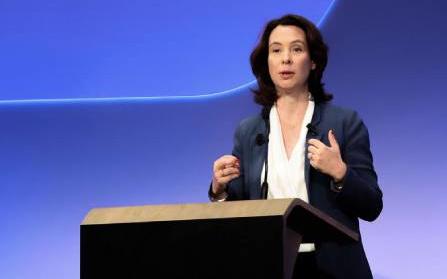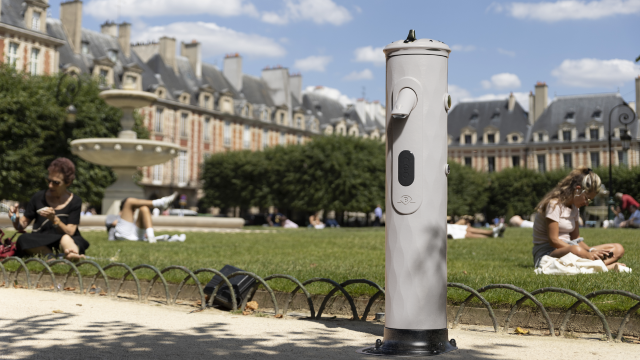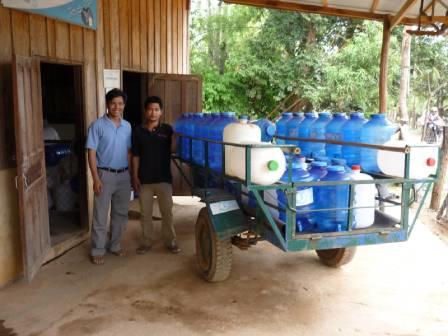World Water Day is an essential opportunity to reaffirm the multiple values of this vital resource and accelerate the deployment of concrete solutions.
Water, the source of all life and activity on our planet, whether fresh or salt, requires urgent protection against pollution and overexploitation, threats that are intensifying with the current climatic, environmental, health and social crises. On this day, Veolia is launching an urgent appeal to speed up the implementation of solutions that will safeguard water resources, and protect them for tomorrow's world. Find out more about Veolia's recent commitments and impactful water-related initiatives.
The "Eco d'Eau" initiative, a large-scale awareness-raising initiative

Veolia recently launched the Eco d'Eau initiative in a context where 81% of French people are worried about drought, and with the aim of sustainably transforming our relationship with water resources. Since its launch in March 2023, this initiative has mobilized 10 million French citizens ready to act by signing a manifesto on the Eco d'Eau website. Awarded the "Every gesture counts" label by the French government, Éco d'Eau encourages everyone to adopt simple eco-gestures to save water on a daily basis. Numerous partners, including companies and local authorities, have signed up to this initiative, taking ambitious measures to reduce their water footprint.
The new Eco d'Eau campaign, launched to mark World Water Day, revisits the great Impressionist paintings to raise awareness of the importance of preserving water.
Water, a precious resource for the energy transition
At a time when the world is facing ever more intense climatic catastrophes, water resources are becoming increasingly scarce, with a lasting impact on the global economy, which cannot do without them. A vital resource for mankind and its industries, water is notably present in the industrial processes used to extract lithium, a major strategic material in the energy transition and the electrification of the world's automobile fleet. The extraction of raw materials such as lithium puts unprecedented pressure on water, jeopardizing modern economies and the future of green technologies. The extraction process requires an enormous amount of water, with more than 1.5 million liters needed to extract one ton of lithium on average. This reality underlines the critical importance of water management in the energy transition.
As a leader in battery recycling, Veolia is developing virtuous and innovative solutions to extract lithium from used batteries and reintroduce it into the market to produce new batteries. This circular approach not only guarantees long-term lithium supply security for Europe, but also helps to reduce pressure on natural resources and promote a circular, sustainable economy. In this way, Veolia's unique positioning across the entire lithium value chain makes it an indispensable partner, offering efficient, sustainable and ecologically compliant solutions, while promoting technological innovation and commercial efficiency.
"Net Zero Water": a call to accelerate existing solutions

In a world facing unprecedented environmental challenges, Veolia is positioning itself as a champion of ecological transformation with its call for the common goal of "Net Zero Water". At COP28, Veolia CEO Estelle Brachlianoff emphasized the importance of this goal, highlighting the need for global alignment to maximize impact. To achieve this ambitious goal, she called for the mobilization of all stakeholders and the unification of efforts to duplicate, accelerate and scale up relevant solutions. Brachlianoff also stressed the importance of leveraging the efficiency, innovation, technology and expertise of private companies, highlighting Veolia's 170 years of know-how.
As a world leader in water technologies, Veolia is already deploying a wide range of solutions to contribute to this goal. These include reusing wastewater where possible, desalinating seawater where necessary, and promoting water savings through the efficiency of industrial networks.
By 2022, the Group has already achieved significant savings, with 320 million cubic meters of water saved and 990 million cubic meters of wastewater treated and reused. These solutions are deployed worldwide to help customers adapt to the climate crisis.
FOCUS ON: A virtuous fountain named NEO
For 170 years, Veolia has mastered every stage of the water cycle. This positioning enables the Group to respond to the needs of local authorities and residents for easy, hygienic and useful access to water. It is this expertise, brought to bear by Veolia's employees, that enables us to support our customers over the long term in implementing integrated, sustainable management of water resources. With this in mind, the new-generation NEO fountain rethinks our relationship with drinking water in the city and its availability.
This tool is a concrete response to the challenges of access to water in cities, and supports local authorities in their policy of developing active mobility. Finally, the bollard helps to combat street pooling, a widespread phenomenon during heatwaves and hot spells, which impacts water resources by creating islands of coolness for local residents.

FOCUS ON: An innovative initiative in Cambodia
The 1001fontaines pour demain association, founded with an innovative vision, promotes the installation of autonomous drinking water production plants combining UV filtration and solar energy, while encouraging the creation of local micro-businesses responsible for producing and selling this water at an affordable price.
Focusing primarily on Cambodia's rural population, deprived of access to drinking water, the association has successfully installed water treatment units in several villages, benefiting hundreds of thousands of people. Supported by Veolia, Accenture and Danone Communities, it strives to extend its impact by developing a sustainable business model, while innovating to reduce CO2 emissions and increase accessibility to drinking water.



